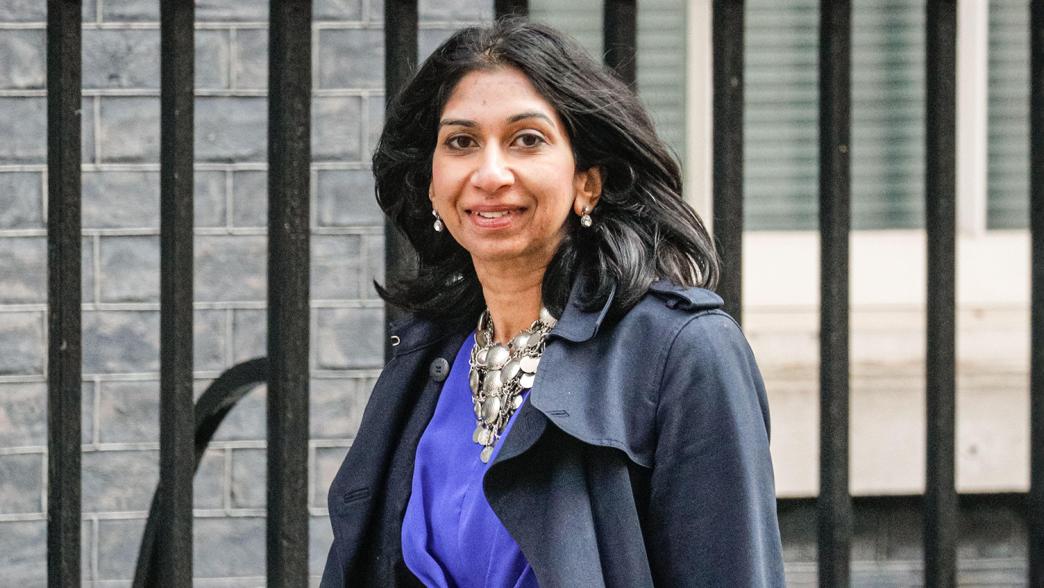The row over Braverman’s future shouldn’t overshadow the problems it has exposed
Appointing an independent ethics adviser would help Rishi Sunak steady the ship.

Rishi Sunak's pledge to restore integrity to government has been thrown off course by his home secretary. Appointing an independent ethics adviser would help him steady the ship, says Catherine Haddon
Rishi Sunak has sought to portray his premiership as a clean break with the mistakes of his predecessor. This has not, so far, gone entirely according to plan. Sunak’s first days in office have been dominated by his decision to reinstate the home secretary, Suella Braverman, who resigned after breaching the ministerial code during the final days Liz Truss’s premiership.
Whether or not Braverman's endorsement of Sunak was crucial to the success of his campaign to become prime minister, he clearly judged reappointing her as home secretary to be a political price worth paying. The backlash and intense focus on the wisdom of her appointment may prove him wrong.
But whatever the future holds for Braverman, the reasons for her previous resignation – for leaking sensitive information – should be a cause of considerable concern in government. Sunak must ensure that steps are taken to ensure such mistakes cannot be repeated. The experience the new prime minister is going through with his home secretary is also an urgent reminder of why – in his own self-interest – he should find himself an adviser on the ministerial code as soon as possible.
The government needs to take steps to stop leaks
After a week in which Braverman began her second stint as home secretary by staying firmly out of sight, she has finally made a Commons statement. While there has been a lot of understandable focus on the timetable of events, and the accuracy of both Braverman’s and Sunak’s accounts, the original reason for her resignation was a simple one: she got caught leaking and going behind Liz Truss's back. Whatever the code’s stipulations, being a minister is dependent on the confidence of the prime minister. If they want you gone, you go.
In Braverman’s case, the method of leaking was forwarding an official document from her personal email account. This is not the first time, nor will be the last, that a minister or special adviser, or official, has leaked government information. It is not as significant a breach as Gavin Williamson’s leaking of Huawei conversations, which mattered particularly because it came from the National Security Council, but the fact of the home secretary leaking information so casually is a worry because of the amount of sensitive information that crosses her desk. Officials need to be sure they can trust the process and the person.
Sunak should ban the use of personal phones for government activity
One of the factors that increases the likelihood of leaks is a blurring of the lines between personal means of communication and political ones. Government has allowed this line to become increasingly flexible as technology has developed without hard and fast restrictions on how ministers should behave.
There should be a clear difference between using government phone for government business and your own phone for personal or political matters. Earlier this year the IfG called for this distinction to be made completely clear through the introduction of a ban on the use of personal phones for government activity.
Braverman made a big mistake, and the government needs to do more to show it takes this problem seriously – and is serious about dealing with it. Introducing such a ban is an obvious step which Sunak could take to demonstrate he is.
By re-appointing Braverman, Sunak has made her integrity his problem
It was entirely Sunak’s decision to have Braverman back in cabinet. But at the point he appointed her, she also became his problem. His stated commitment to “integrity” means the sword onto which Braverman may fall is already sharpened, but in the absence of an independent standards adviser it is Sunak who must decide if and when.
As prime minister Boris Johnson pushed at the limits of this role, and eventually broke it with the resignation of his second adviser. But the role was never supposed to be about holding prime ministers to account. Rather it was intended to be a means for them to keep their ministers in line – advising them on ethics and standards questions that arose about members of their cabinet. Having such an adviser, never a perfect model, did two things: it stopped the civil service having to carry the weight of making judgements about their ministerial bosses (a problem epitomised by the Gray report) and it allowed prime ministers to distance themselves from the investigative and judgement process, even if they made the final call. It also allowed the prime minister to take action – launching an investigation – without taking action, which often took the immediate heat out of an emerging scandal.
Braverman is presumably on the ministerial equivalent of a final warning, and her statement to MPs is unlikely to have shut down the story. If – as seems likely – more details emerge, the pressure on Sunak will be sustained. Without an ethics adviser, he has no visibly independent figure to whom he can outsource the establishment of facts and the provision of advice on their implications. In the absence of such a figure, the media is ever eager to fill the void and disgruntled officials and political opponents more likely to provide them with the means to do so.
Political necessity may have been the reason for Braverman’s reappointment to cabinet, but the political reality is that if Sunak continues to fail to appoint an independent adviser he will be storing up problems for himself in the future.
- Supporting document
- reinforcing-ethical-standards.pdf (PDF, 180.75 KB)
- Topic
- Ministers
- Keywords
- Ethical standards Ministerial code
- Public figures
- Rishi Sunak Suella Braverman
- Publisher
- Institute for Government